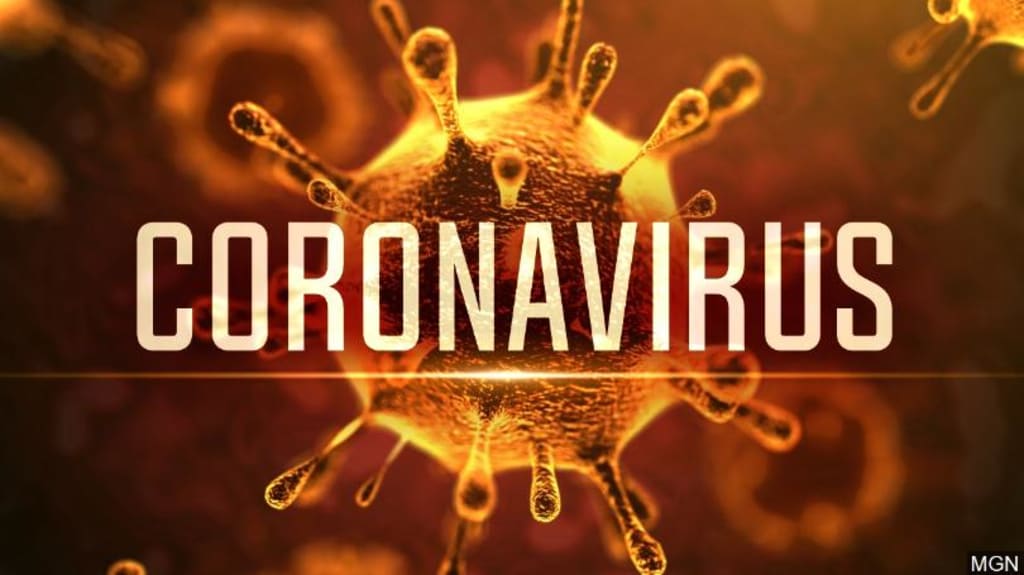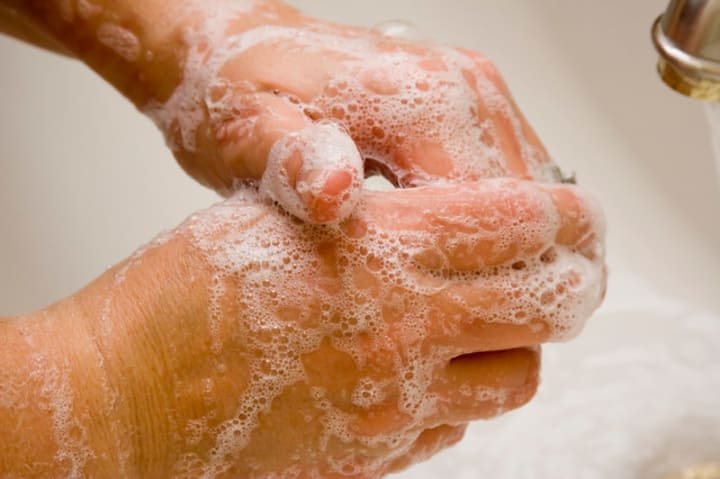Coronavirus: 10 Reasons Not to Panic
Being aware of certain information will keep you from panicking.

Some people are beginning to panic over what they are reading and hearing about coronavirus, also known and COVID-19. Yes, the disease has become a global problem, but being informed might keep you from worrying.
It started in China and has spread to more than 100 countries. It has infected more than 109,836 people worldwide, and the number is increasing day by day. So far, there have been more than 3,803 deaths. It has been reported that the cases in China are not increasing as rapidly as they did when the outbreak first started.
The Centers for Disease Control and Prevention (CDC) and the World Health Organization (WHO) want the public to be aware of what is happening to keep people from panicking. Therefore, a number of scientists, researchers, and medical professionals have offered the following reasons to keep people informed and perchance to ease their minds. Ignacio López-Goñi, a professor of microbiology and virology at the University of Navarra in Spain, contributed to the following reassuring facts about COVID-19.
1. Better Tools Than Ever
Even though coronavirus is a great challenge medically, politically, socially, and economically, the world has never been better equipped to fight it than now.
López-Goñi stated that the virus that caused cases of severe pneumonia in Wuhan was identified within seven days of the official announcement on December 31, 2019. Within three days, the gene sequence was available for use. It took two years to identify HIV when it first appeared in mid-1981.
2. High-Risk People
No one is exempt from being infected with COVID-19, but some are more at risk than others. The elderly, those 60 years and older, are at risk. About 15 percent of people in their 80s have been affected especially those with pre-existing heart disease, lung disease, and diabetes are at risk, according to the CDC. The surgeon general notes that those who have died had an average age of 80.
Young people are at very low risk. Not many children have been affected. Only 3 percent of all cases include people under 20. The death rate for those under 40 years old is about 0.2 percent. Even though young people aren’t at risk of dying from coronavirus, they could spread the virus to people around them such as their aging grandparents.
High-risk people are also those who have traveled abroad and those who have come in contact with someone who has traveled abroad.
Anyone will be at a high risk of being infected with coronavirus if he has direct physical contact with someone infected, be coughed or sneezed on by them, by picking up a used tissue or being in face-to-face contact with an affected person. No one will become infected by passing an infected person on the streets or passing someone in the corridor at work.
3. Disease Comes With Symptoms
It doesn't mean a person is sure to die if he has symptoms. The disease comes with symptoms even though they might be mild at first after being infected. According to a study of 45,000 confirmed infections in China, 81 percent of the cases had only minor symptoms. About 14 percent of patients had severe symptoms, and just 5 percent were considered to be critical. Half of those with critical symptoms did die. The best estimate for deaths from the coronavirus so far is 1.4 percent, not nearly as many as the 1918 Spanish flu and 2009 swine flu.
4. There Are Tests for the Disease
A reliable test was conducted just three days after the onset of the disease. By January 13, 2019, a reliable test had been developed by scientists at the Department of Virology at Berlin’s Charité University Hospital with help from experts in Rotterdam, London, and Hong Kong.
5. Treatments Are Available
By mid-February, more than 80 clinical trials were underway for antiviral treatments, and dozens of treatments had already been tested. A number of drugs such as remdesivir (used for Ebola and Sars), chloroquine (used for malaria), lopinavir and ritonavir (used for HIV), and baricitinib (used for rheumatoid polyarthritis) are all being tried on patients who have been affected with coronavirus.
6. Preventive Measures
People will not easily become infected with coronavirus if they are careful to follow some simple instructions. Washing your hands thoroughly is the most effective way to stop the virus from being transmitted. Even if you catch it, it is quite easy to kill it with some effort. Surfaces can be cleaned with a solution of ethanol, a solution of hydrogen peroxide or a solution of bleach. These are some household products that most people already have on hand.
7. Disease Can Be Contained
We know the disease can be contained by quarantine. Last week, 120 new cases were reported in China. That was the lowest figure in six weeks since the start of the outbreak. Schools are reopening there. The virus can be readily contained because infections come in clusters in many countries.
8. People Are Recovering
Most of the time, people panic because they hear about the outbreak and the number of affected people. Perhaps if they knew what the odds are, they wouldn't worry as much. Thousands of people around the world are recovering. Therefore, people should know that not everyone who gets the disease will die. So far, there have been 111,000 confirmed cases. Out of that number, there have been 3,803 deaths, 60,695 people have recovered.
9. Public Not Kept in Dark
Since the emergence of the virus, hundreds of scientific articles have already been written about COVID-19. There are more than 539 references online to papers about the virus and things relating to it such as vaccines, therapies, epidemiology, diagnosis and clinical practice. The idea is that the more you know, the less you will worry.

10. What You Can Do
Instead of waiting for the coronavirus to come to you, get in the habit of protecting yourself beforehand.
- Avoid close contact with people who are sick.
- Stay home if you are sick.
- Refrain from touching your eyes, nose, and mouth.
- Cover your mouth when you cough and sneeze.
- Throw a used tissue away after you blow your nose.
- Use household cleaning products to disinfect surfaces and objects you frequently touch in your home and workplace.
- Wash your hands with soap and water for at least 20 seconds.
- Avoid large crowds.
- Do not go on a cruise ship.
Disclaimer
This content is accurate and true to the best of the author’s knowledge and does not substitute for diagnosis, prognosis, treatment, prescription, or any medical advice from a trained and licensed health professional. The article is based on a compilation of information gathered from reports read online and seen on television. Statistics listed might have changed by the time you read this article.
About the Creator
Margaret Minnicks
Margaret Minnicks shares articles with readers all over the world. Topics include celebrities, royal family, movies, television, foods, drinks, health issues, and other interesting things. Thanks in advance for TIPS that are sent my way.






Comments
There are no comments for this story
Be the first to respond and start the conversation.